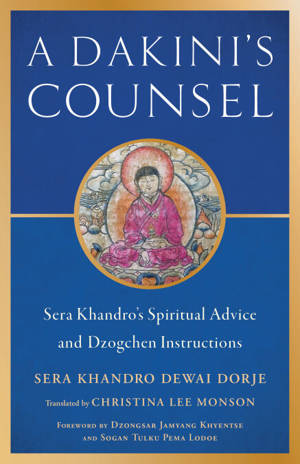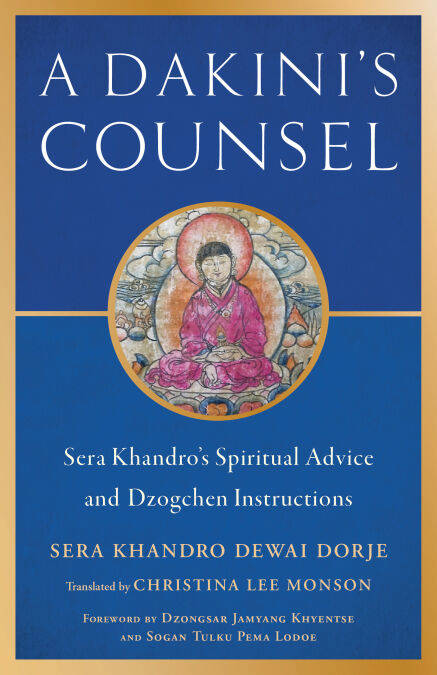
- Afhalen na 1 uur in een winkel met voorraad
- Gratis thuislevering in België vanaf € 30
- Ruim aanbod met 7 miljoen producten
- Afhalen na 1 uur in een winkel met voorraad
- Gratis thuislevering in België vanaf € 30
- Ruim aanbod met 7 miljoen producten
Zoeken
A Dakini's Counsel E-BOOK
Sera Khandro's Spiritual Advice and Dzogchen Instructions
Sera Khandro
E-book | Engels
€ 26,56
+ 26 punten
Omschrijving
Translated here for the first time, a collection of heartfelt and intimate advice for Buddhist practice from the modern female Buddhist teacher Sera Khandro Dewai Dorje (1892–1940), revealing her firsthand experiences as a mother, wife, consort, and spiritual teacher of the Dzogchen tradition of Tibetan Buddhism.
Sera Khandro Dewai Dorje was a rare example of a well-known Tibetan woman renowned as a teacher in the modern era. While there are many notable female figures in Tibetan Buddhist history, very few left a collection of poetic, autobiographical, and devotional writings as extensive as Dewai Dorje. Both biographical and instructional, this is a collection of advice, prayers, dreams, prophecies, and treasures (terma) from within the Tibetan Buddhist tradition of Dzogchen, a Buddhist practice on resting in the nature of mind. Typically seen as high level practices, these Dzogchen and other instructions are presented in Dewai Dorje’s highly personal and accessible voice.
This collection of practice instructions is a window into the inner experience of a beautiful woman in love who single-pointedly pursued a life of Dharma. Born to a wealthy and powerful father in Lhasa, she left home and became a dedicated Dharma practitioner living as an unaccompanied female in the wilds of eastern Tibet in the early 1900s. She became a wife, mother, and then consort and wrote of both highly spiritual and highly personal experiences, from spiritual realization to grief.
Sera Khandro Dewai Dorje was a rare example of a well-known Tibetan woman renowned as a teacher in the modern era. While there are many notable female figures in Tibetan Buddhist history, very few left a collection of poetic, autobiographical, and devotional writings as extensive as Dewai Dorje. Both biographical and instructional, this is a collection of advice, prayers, dreams, prophecies, and treasures (terma) from within the Tibetan Buddhist tradition of Dzogchen, a Buddhist practice on resting in the nature of mind. Typically seen as high level practices, these Dzogchen and other instructions are presented in Dewai Dorje’s highly personal and accessible voice.
This collection of practice instructions is a window into the inner experience of a beautiful woman in love who single-pointedly pursued a life of Dharma. Born to a wealthy and powerful father in Lhasa, she left home and became a dedicated Dharma practitioner living as an unaccompanied female in the wilds of eastern Tibet in the early 1900s. She became a wife, mother, and then consort and wrote of both highly spiritual and highly personal experiences, from spiritual realization to grief.
Specificaties
Betrokkenen
- Auteur(s):
- Vertaler(s):
- Uitgeverij:
Inhoud
- Aantal bladzijden:
- 256
- Taal:
- Engels
Eigenschappen
- Productcode (EAN):
- 9780834845442
- Verschijningsdatum:
- 20/05/2024
- Uitvoering:
- E-book
- Beveiligd met:
- Adobe DRM
- Formaat:
- ePub

Alleen bij Standaard Boekhandel
+ 26 punten op je klantenkaart van Standaard Boekhandel
Beoordelingen
We publiceren alleen reviews die voldoen aan de voorwaarden voor reviews. Bekijk onze voorwaarden voor reviews.







